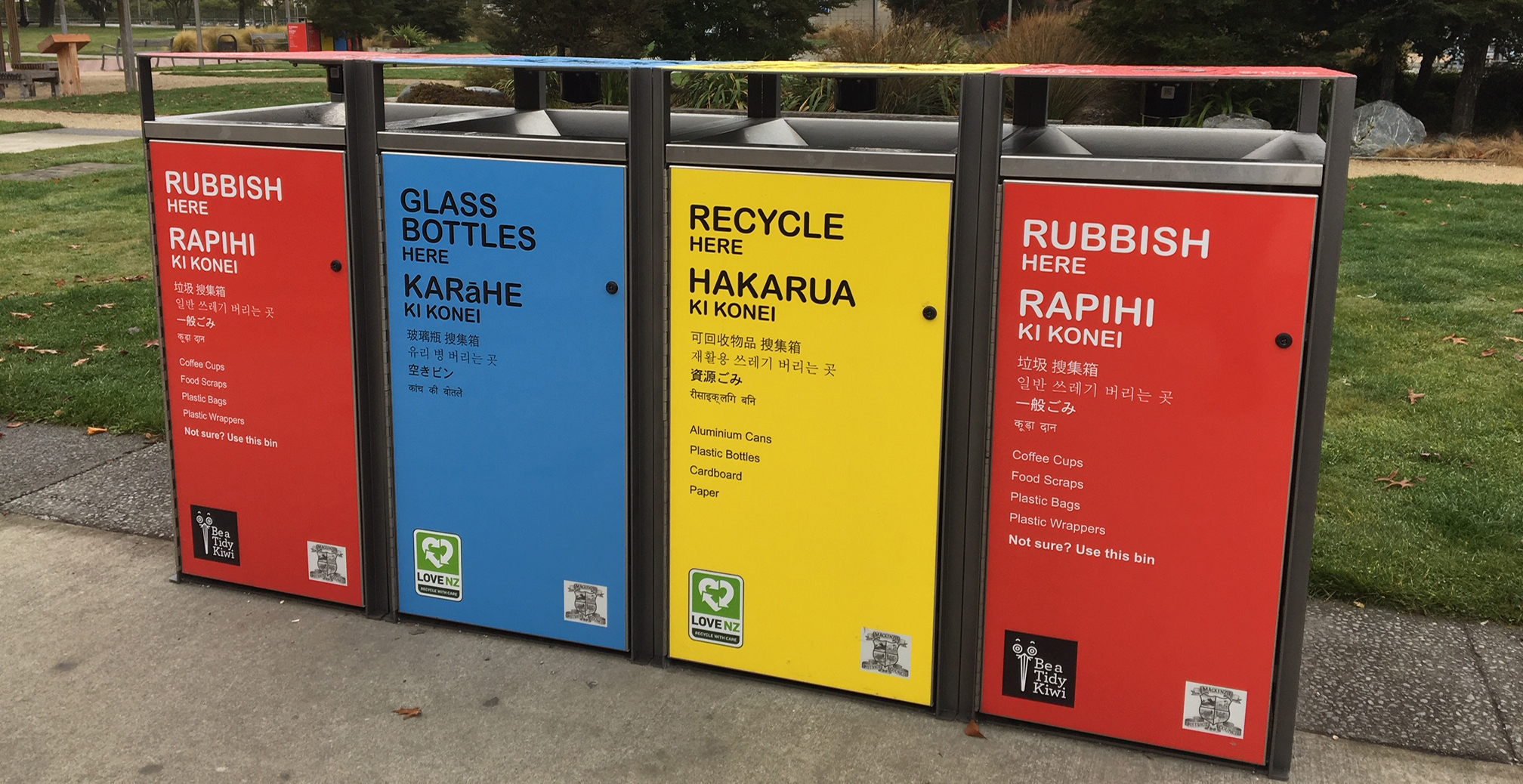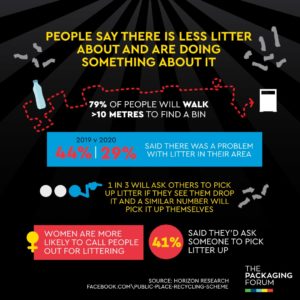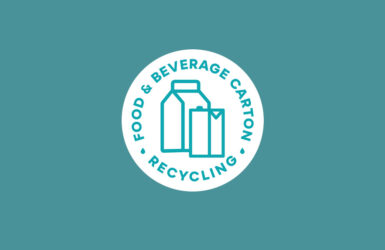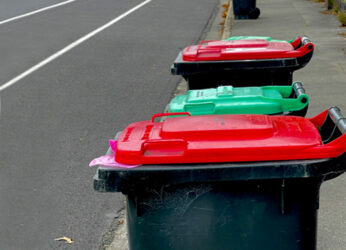New Zealand is winning the war on litter, a recent survey shows, with more people aware of public bins, more likely to put litter and recycling in the correct bin, and feel litter is less of a problem in their area.
20 April 2020
The survey, conducted by Horizon Research for The Packaging Forum, spoke to over 1000 people about the Forum’s Public Place Recycling Scheme bins and the Love NZ brand. It found that some 2.3 million adults have public place rubbish and recycling bin in their area.
Public Place Recycling Scheme Manager Lyn Mayes says the statistics are very encouraging. “Two out of three New Zealanders (64%) say they have public place rubbish and recycling bins in their area – up from 40% in 2015.
“We have worked hard with councils and businesses around New Zealand to increase ‘binfrastructure’ and to introduce standardised colours and signage to make it that much easier for people do the right thing and put litter or recycling in the correct bin. It’s great to know it’s working.”
The kids are alright
The number of young adults (18-24 years-old) aware of the scheme’s new colour-coded bins, or who have public place recycling bins in their area is a good sign for the future, Lyn says. The survey showed 79% of them have bins in their area and 75% are aware of the new bins.
The colour-coded bins were introduced in 2017 as part of the nationwide Let’s Put Litter in its Place campaign run in partnership with Be a Tidy Kiwi, are having an impact, Lyn says.
“Eighty-three percent of people in the survey say standardised colours and signage make it easier to choose the right bin when throwing away rubbish or recycling while they are out and about.”
The survey shows there is a corresponding decrease in people’s concern around the amount of litter in their area. “This has dropped significantly from 44% in 2019 to 29% this year,” Lyn says.
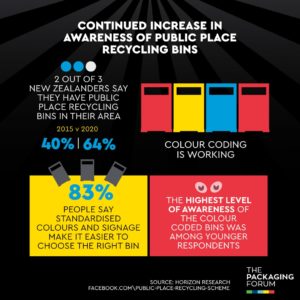
Be a tidy Kiwi
“Our awareness campaign has seen thousands of Kiwis, including the Prime Minister, politicians and celebrities, pledge to ‘Be a Tidy Kiwi’ and stop littering. It’s rewarding to see that one in three understood the idea behind the campaign and would now ask someone to pick up litter if they saw someone drop it, while a similar number would pick litter up themselves.”
Women, she says, were shown to be more like than men to ask someone to pick up litter.
Finding a bin
Not all the statistics showed improvements. People’s willingness to walk a short distance to find a bin had changed little, with 79% prepared to walk more than 10 metres – the same as 2019.
However, there was an increase in the number of people prepared to walk more than 40 metres to find a bin, with 37% saying they would – up from 29% in 2019 and 23% in 2018.
